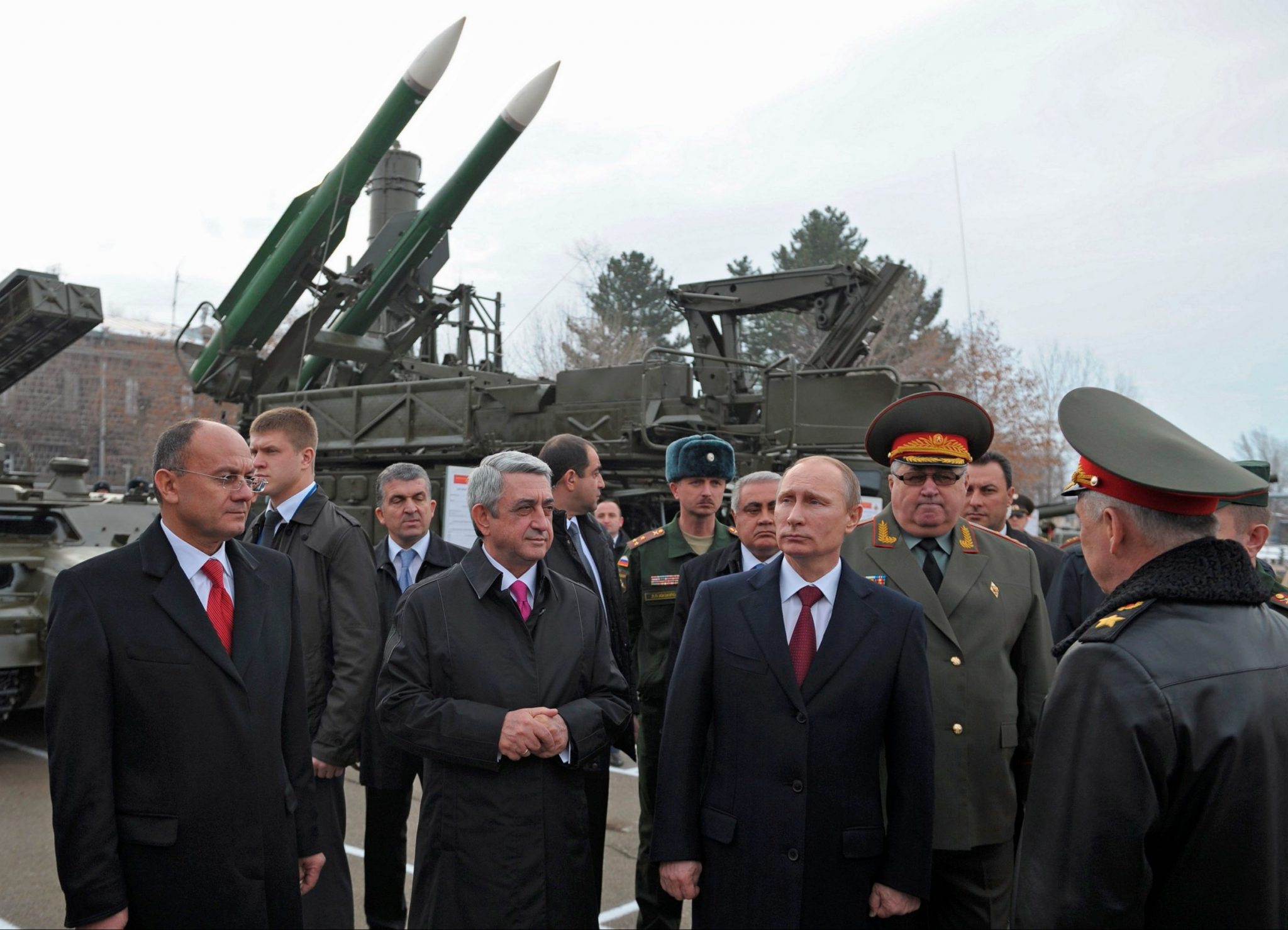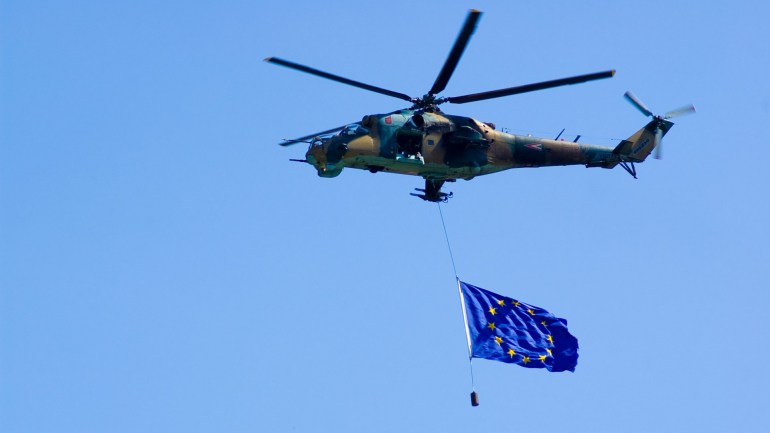
[authorbox authorid=”32″ title=”The Author”]
Of the various states of the former Soviet Union, Armenia has long been seen as the most loyal, and perhaps most subservient, to Russia. For Russia, its leverage over Armenia has depended on a “3G” approach, consisting of a combination of guns and discounted weapons, below market gas supplies, and goods, as both a major trading partner and as the dominant force of the Eurasian Economic Union.
And for Armenia, the alliance with Russia is acutely defended as a “strategic partnership,” it is more accurately defined by a dangerous Armenian over-dependence on Russia.
Driven by an imperative of threat perception over the Nagorno-Karabakh conflict and the internet promise of a security guarantee, Russia has long represented Armenia’s priority partner. And over time, Armenian-Russian relations have steadily devolved as Armenia has mortgaged its own independence. Yet more recently, there is a rather surprisingly crisis in Armenian-Russian relations, casting new doubt over the perception of Armenia as such a submissive “partner” for Russia.
Dependence & divergence
As Armenia has been drawn increasingly closer within the Russian orbit, a series of past policy decisions have resulted in a steady mortgaging of the country’s independence. With each of these policy moves, made by several Armenian governments, representing a culmination of tactical trade-offs and strategic surrenders, Russia acquired several significant sectors of the Armenian economy, successfully pressured Armenia to sacrifice its earlier Association Agreement with the European Union, and in an affront to any country’s sovereignty, assumed control over two of the country’s four external borders.
Against that backdrop of mounting over-dependence, there has also been a widening divergence of interests between Armenia and Russia. While this divergence of interests is natural, as Armenia and Russia clearly do not share the same national interests, the realization for Armenia of the limits of its “partnership” was both a radical and belated development.
Perils of “partnership”
Since the April 2016 fighting over Nagorno-Karabakh, with an unusually successful Azerbaijani military offensive was able to seize and secure territory for the first time, the limits of Armenia’s reliance on Russia and the perils of its partnership became apparent. And as Russia had emerged as the primary arms supplier to Armenia’s rival Azerbaijan even before the 2016 fighting, the stinging military loss was matched by the stabling loss of face over what became seen as Russian betrayal.
For Armenia, there is no real questioning of its partnership with Russia, however. Overly dependent on Russia as both a trading partner and as the main source for remittances, the economics of the Russian 3G strategy remains firm. But while Russian power and position over Armenia seems ensured, there has been a fundamental shift in Armenia’s attitude toward its strategic partner. This shift has become only more pronounced in the face of Moscow’s rather stubborn refusal to accept the reality of a crisis in relations with its normally subordinate Armenia ally. In fact, a series of statements from senior Russian officials have only tended to enflame tension, and reinforced a deepening sense of Russian arrogance toward Armenia.
But even against that backdrop, Armenia lacks any real leverage to counter or combat the now evident degree of asymmetry and arrogance inherent in the Armenian-Russia relationship. Despite Armenia’s rather limited options, however, the challenge now is not to the relationship itself, but to the terms of that relationship. And in this context, Armenia’s emergence as the only member of the Eurasian Economic Union with a strategic agreement with the European Union greatly enhances Armenia’s position in one key respect: as the key to garnering greater credibility for the Eurasian Economic Union.
And as Russia recognizes the necessity for greater credibility ad credentials for its Eurasian project, Armenia has secured an important new instrument of leverage of its own. Moreover, as the potential bridge between the Eurasian Economic Union and the European Union, as well as to Iran, Armenia may be able to play a weak hand better and escape the pressing gravity of the Russia orbit on its own terms.



